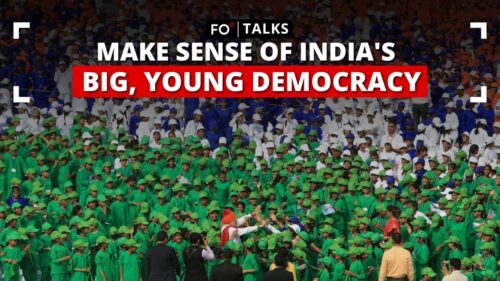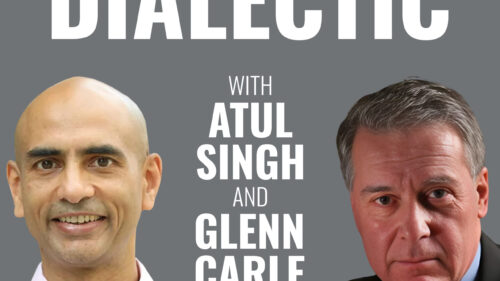“My father has kept us away from politics, whether it is me, my brother or any other family member. My little brother returned back from Delhi a few days ago only to campaign and become the voice of our jailed father.” These were the words of Abrar, son of the jailed Indian politician Sheikh Abdul Rashid.
Rashid, popularly known as Engineer Rashid, has taken established political parties and people outside the Union Territory of Jammu and Kashmir (J&K) by total surprise. Conducting his campaign from prison, he won a parliamentary seat in this year’s Lok Sabha election. On July 5, he was officially sworn in.
There are indications that the J&K electorate angry at its pathetic condition and at unfulfilled promises punished established parties.
The victory prompted political parties and the public outside the Union Territory of Jammu and Kashmir (J&K) to wonder who Engineer Rashid is and what factors prompted his dramatic victory.
Who is Engineer Rashid, and why is he so popular?
Engineer Rashid was a Member of the Legislative Assembly from the Langate constituency in the now-defunct state of Jammu and Kashmir. (In 2019 the Modi government decided to repeal Article 370, a special provision of the Indian constitution that granted autonomy and statehood to J&K. It also granted powers to the state government on all matters except defense, external affairs and communications. Once the article ceased, the state became a union territory with a governor appointed by the central government.
Engineer Rashid is also the founder of the Jammu and Kashmir Awami Ittehad Party.
In 2019, the National Investigation Agency arrested him in a terror funding case. He has been in jail ever since. The jail sentence did not stop him, however, from contesting the election.
Engineer Rashid’s decision to contest the Baramulla constituency made him hugely popular among the youth. Baramulla has been infamous for militancy and political dormancy. For much of the last 30 years, the district experienced large-scale armed violence. Though incidents of mass violence have declined from its peak in the 1990s, until recently, the district faced frequent breakdowns in law and order.
Despite promises by previous governments to improve law and order and the economic situation, locals in particular the youth felt that they hadn’t seen any real change or improvement in their lives. Engineer Rashid’s campaign tapped into this sentiment.
His decision to contest from the constituency came as a rude shock to established political parties. Before the announcement, it was widely expected that the clash would be between the National Conference (JKNC) and Apni Party, both of whom had roots running deep through the constituency. While the JKNC is an ideologically secular party, the Apni Party aligns itself with Prime Minister Narendra Modi’s Hindu nationalist Bharatiya Janata Party.
The election campaign
With his father in jail, Abrar campaigned throughout the constituency. Like his father, he is also hugely popular with the party base and youngsters who accompanied him wherever he sought votes.
Abrar attributes his overwhelming support to his “father’s good work for the people of Jammu and Kashmir,” adding that he was “in the campaign only because [of his] father.” He expressed his frustration at “his father being behind bars for the past five years,” claiming that it was so “because he talked about Kashmir and its people” while “the rest of the parties used money and muscle power.” Abrar is of the opinion that “people were coming of their own will and that the credit for the entire campaign goes to them.”
Many of the individuals who attended his drive-through rallies shared their support for Engineer Rashid. Among them was Inayat Adil, a young man in his 30s who was of the opinion that, “For many years, or decades for that matter, people preferred to boycott elections as we did not feel that any leader was worth voting for. They would visit us during the election and soon vanish, but this time we feel that we should vote for Engineer Rashid.”
Mohammad Yousuf Shah, an aged man from Pattan, stated that the “previous leaders made ‘fake promises,’ which is why we are supporting Engineer and participating at his rally.” He hoped that the Engineer could become the people’s voice in the parliament.

People waiting in a queue to cast their votes in Baramulla. Via Sajad Ahmed Bhat. Used with permission.
In a crucial development, Home Minister Amit Shah visited Jammu and Kashmir on May 16, a few days before voting was to take place. Shah is something of a legend due to his feat in in 2017. Then the BJP’s national president, he led the party to a victory in India’s most populous state, Uttar Pradesh. This year, it seems, the BJP felt the need to pull the big guns into J&K.
During his visit, Shah made an appeal to the party cadre to ask party supporters to vote against the JKNC, the People’s Democratic Party and the Indian National Congress, indicating that the Altaf Bukhari’s Apni Party and Sajad Lone’s People’s Conference were preferable options. He also expressed regret for not fielding BJP candidates in some seats.
Election day
The atmosphere in and around the Baramulla constituency was different from usual. People were enthusiastic to vote rather than boycott the election as was the norm in J&K.

An Elderly man, showing ink mark on finger and holding a voting slip in his other hand, after casting his vote. Via Sajad Ahmed Bhat. Used with permission
Unemployment, lack of development and dissatisfaction with successive governments not fulfilling their promises weighed heavily in the minds of many first-time voters. One such first-time voter was Mubasir Ahmed. He felt that the “government had not fulfilled its promises” adding that the voters had come out of their “homes in hope of a change” expressing faith in the vote they were “going to cast this time.”
Other voters expressed similar sentiments. They are fed up with “unemployment, long power cuts, hectic power bills,” expressing hope that their “chosen leader will solve all their issues” and “be their voice.” Yet another voter, Mohammad Ramzan, stated, “Voting is everyone’s right and that should be used, with the hope that my chosen leader will, God willing, win.” The voter’s yearning for a change was visible from the turnout.
As per the data from the Election Commission of India, the turnout was 59.10%, the highest in eight elections. Interaction with locals and suggested a clear wave against the ruling BJP’s actions since the repeal of Article 370 of the Indian constitution and dissatisfaction with parties not doing anything about livelihood issues. First-time young voters, educated individuals and a group of elderly voters turned out in large numbers.
Engineer Rashid won by a margin of 472,481 votes. He defeated political heavyweights such as former Chief Minister Omar Abdullah, leader of the JKNC. Other defeated candidates were Sajad Lone from the People’s Conference and Mir Mohammad Fayaz from the Jammu and Kashmir People’s Democratic Party.
The results clearly indicated frustration with the status quo and a desire for change. It also showed that national heavyweights such as Shah were unable to change the result in a way that was favorable for the BJP. Last Friday, Engineer Rashid took his oath as a Members of Parliament. Rashid was granted parole to take the oath. The ceremony took place amid heightened security in the parliament complex.
[Aniruddh Rajendran edited this piece.]
The views expressed in this article are the author’s own and do not necessarily reflect Fair Observer’s editorial policy.
Support Fair Observer
We rely on your support for our independence, diversity and quality.
For more than 10 years, Fair Observer has been free, fair and independent. No billionaire owns us, no advertisers control us. We are a reader-supported nonprofit. Unlike many other publications, we keep our content free for readers regardless of where they live or whether they can afford to pay. We have no paywalls and no ads.
In the post-truth era of fake news, echo chambers and filter bubbles, we publish a plurality of perspectives from around the world. Anyone can publish with us, but everyone goes through a rigorous editorial process. So, you get fact-checked, well-reasoned content instead of noise.
We publish 2,500+ voices from 90+ countries. We also conduct education and training programs
on subjects ranging from digital media and journalism to writing and critical thinking. This
doesn’t come cheap. Servers, editors, trainers and web developers cost
money.
Please consider supporting us on a regular basis as a recurring donor or a
sustaining member.
Will you support FO’s journalism?
We rely on your support for our independence, diversity and quality.







Comment